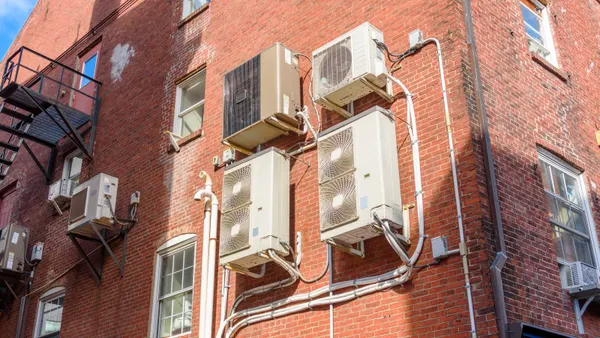Dive Brief:
-
Utility regulators, attorneys general and ratepayer advocates from 14 states on Tuesday urged the Federal Energy Regulatory Commission to tighten its accounting requirements so consumers aren't charged for expenses related to political and lobbying contributions.
-
The Ohio Public Utilities Commission, for example, told FERC it supports efforts to "clearly delineate" the recoverability of utility spending on political, civic and charitable activities.
-
Trade groups like the Edison Electric Institute (EEI), which represents investor-owned utilities, the American Gas Association (AGA) and Interstate Natural Gas Association of America said FERC's existing accounting rules provide enough transparency to prevent ratepayers from being charged for non-recoverable expenses like lobbying.
Dive Insight:
In response to a petition from the Center for Biological Diversity, FERC in December issued a "notice of inquiry" (NOI) to see if it should revise its accounting rules related to utility payments of trade association dues.
Under FERC's accounting rules, association dues are considered "presumptively" recoverable, but the commission doesn't allow expenses related to lobbying, influencing the public, or political activity to be recovered in rates.
In a first-ever lobbying disclosure report, EEI on Tuesday said its "core" budget for this year is $58.9 million. E9 Insight, a Boulder, Colorado-based consulting firm, estimated utility holding companies spent at least $91.6 million on trade association dues last year.
At a minimum, FERC should require utilities to substantiate their requests for recovery of industry association dues with breakdowns of the trade groups' activities and clear connections showing how they benefit ratepayers, agencies from nine states said in joint comments.
"Showing that an industry association provides some services that benefit ratepayers should not create a presumption that all dues paid to the industry association are paid for ratepayers' benefit," the agencies said. They included the California Public Utilities Commission, the Connecticut attorney general and the Oregon attorney general, among others.
In their comments, the state agencies pointed to the U.S. Court of Appeals for the District of Columbia Circuit decision in December to overturn FERC's finding that Potomac-Appalachian Transmission Highline (PATH) could recover about $6 million in expenses related to public relations.
"The disputed funds were paid to public relations contractors who hired ‘reliable power coalitions' that would recruit individuals to testify before the state PUCs in support of PATH's applications for necessary certificates; polled public opinion of the project; ran promotional advertisements; and sent lobbyists to persuade state officials that the certificates should be granted," the state agencies said.
The Ohio PUC said it has long sought to prevent utilities from recovering expenses connected to political, charitable or lobbying activities. Even so, the Ohio PUC in 2020 opened an investigation into the political and charitable spending of FirstEnergy utilities after the utility company was caught bribing state lawmakers to get financial support for two nuclear power plants.
Earlier this month, FERC found that FirstEnergy spent $70.9 million on undisclosed lobbying expenses and that some of the expenses were improperly charged to ratepayers, according to an audit report released earlier this month.
"Action to add transparency to the commission's accounting regulations and leave little room for interpretation would be a worthwhile endeavor," the Ohio PUC said.
There is no problem with FERC's existing accounting requirements, according to EEI.
"Nothing in the NOI indicates that current Uniform System of Accounts ... regulations are deficient or fail to assure that trade association dues are recorded accurately or appropriately," the trade group said.
EEI gives its members dues statements that clearly outline the portion of the dues that are allocated to lobbying activities, according to the trade group.
The AGA echoed EEI's comments. "Trade associations already comply with extensive lobbying disclosure requirements that provide transparency related to lobbying activities," the AGA said.















